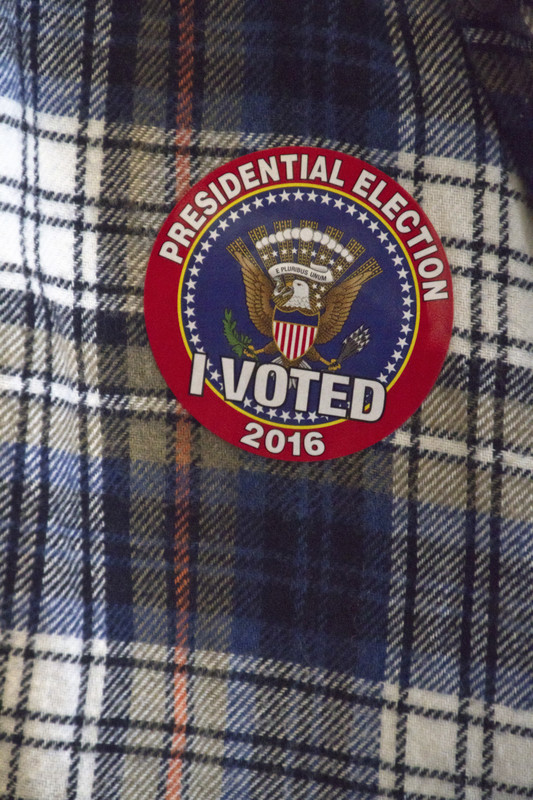“What is it about white trash and flannel?”
The words bounce around my brain as Saoirse, Ula and I drive by the house where they were uttered.
We’re in Ithaca for an appointment, and before we take the long drive home, they’ve asked me to bring them here, to show them the house.
It was the house where I was hired as a nanny when I came to Cornell as a graduate student over twenty years ago. Politically, the owner seemed like a good prospective employer. We voted for the same presidents, signed the same petitions. She donated to progressive causes.
She had money, I didn’t. But I liked kids, and apparently she wasn’t so sure-footed on that front. I thought that made us a perfect match; because I didn’t know how I was going to survive on a graduate stipend without a side gig to cover the costs of my room and board.
The comment came the first week, after I moved to my attic bedroom and put a brand new set of flannel sheets on the bed.
It was just one of many digs and jabs I endured being a rural farm kid in pursuit of higher education. For certain, there were programs at Cornell where rural farm kids were traditionally accepted; but those weren’t the ones I tried for in my three failed attempts to get in there. After my third rejection, at Mom’s urging, I rejected the rejections. I called the rural sociology professors I wanted to work with. I argued that my rejection wasn’t based on academic merit; that it was based on my address. My recommendations came from Schoharie County, which weren’t prestigious enough. My background was Schoharie County, which wasn’t prestigious enough. After making that point, I then reminded them of the Morrill Act, the Land Grant College Act. Cornell was created for folks like me. That’s how I got in the door in a program that didn’t see many farm kids.
But it became pretty apparent once I was there that I didn’t easily fit in. And while I had the kind of upbringing where I learned to hold my head high and keep going, the insidious bits of poison still managed to grab hold of me, whispering to me that I wasn’t truly deserving — those words from my boss’s lips the most incisive among them.
It all comes flooding back as I put the car in park and let the girls stare up at that big house — that pain of trying to earn an education while simultaneously feeling unworthy of it. It turned to defensiveness and bravado on the outside, the scabs that hid the deeper wounds inside.
Ironically, it was at this place where I felt so unworthy when I started to understand my worth. I saw the importance of my family’s vocation. I came to understand how our stewardship kept the air clean and the water pure and the food supply secure. I learned about the political and economic forces we had to fight against. And in my own research, I began piecing together the social history — the hostilities and prejudices that were causing us to fail; the traditions of resourcefulness and interdependence that could help us succeed.
It’s all been a pretty rewarding journey. But I can’t remember these good things as I stare up at the attic window with my children in the car.
I just remember being called white trash.
We drive home and I cringe as I see more and more banners slowly creeping up on the sides of Upstate New York houses: Trump 2020. The upcoming election is once more about anger and hatred. And I want to believe that only one side of the political spectrum is capable of that. But it isn’t. We’re all capable of it. We’re so capable, we can preach peace and social justice while calling out white trash in the same breath. And if I can see it plain-as-day staring up at this giant house, I can’t help but wonder how many times I’ve been inadvertantly guilty of the same sins myself?
I want to type the words that will stop this. I want to type the words that will get my neighbors down the road to take down their Confederate flags. But I also want to type the words that get the other neighbors who bad-mouth them to stop focusing on the position and start focusing on the underlying pain. It runs so much deeper than economics and poverty. It’s about feeling unworthy and undeserving. A body can only take so much of those feelings before it becomes hateful and angry.
The election has little to do with this deeper problem. It’s merely a symptom. The solution to this lies within each of us: to look each other in the eye; to speak with open hearts without fear of recrimination; to understand our worth enough to assert it; to forgive the slights against our many races and cultures while working to build a mutual language of understanding.
And as I write these words, I realize that the forgiveness needs to start with me. And even with those comparatively tiny slights I endured as a farm girl seeking an education, it’s friggen hard. But it’s the work we have to do right now.

As I look around me, I ponder how can we find a common language to abridge this divisiveness. How can we overcome ‘him” who stokes the fires of our hurt? I do not know. But, I know we need to. I advocate forgiveness. Not always easy.
You have given me much to ponder.
Grace to us all.
Patricia/Fl
Thanks for reading, Patricia.
As my son Chip stated last Saturday at your place, “This gal has come a long, long way!”
Yup!
A long way. And still in the same place. With a long way to go!